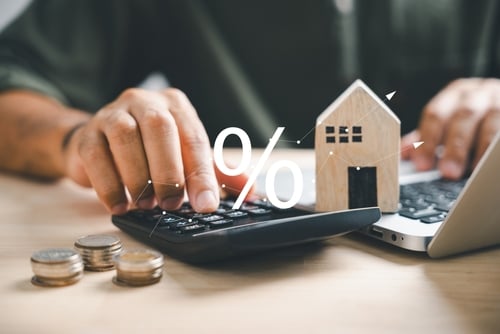In a world where everything is available with a tap or a click, instant gratification has become part of everyday life. Whether it’s fast food, streaming shows, or quick online shopping, getting what we want right away is easier than ever. While it feels good in the moment, this rush of pleasure often comes at a price. In fact, instant gratification frequently trades deep, lasting satisfaction for fleeting happiness. Over time, this habit can leave us feeling less fulfilled and more distracted from what truly matters. For those caught in cycles of overspending or credit card debt, exploring credit card debt relief options alongside changing habits around instant gratification can be life-changing. Let’s take a closer look at why chasing immediate pleasure isn’t really worth the cost.
The Difference Between Pleasure and Satisfaction
Instant gratification delivers a quick hit of pleasure—it’s the excitement of a new purchase, the relief of eating a favorite snack, or the distraction of a funny video. But pleasure is usually short-lived. Satisfaction, on the other hand, is deeper and longer-lasting. It comes from achieving meaningful goals, building strong relationships, and living according to your values.
When we constantly choose immediate pleasure over long-term satisfaction, we often sacrifice the things that truly enrich our lives. This pattern can create a sense of emptiness or restlessness, even when we have plenty of “fun” moments.
How Instant Gratification Affects Financial Health
One of the most noticeable areas where instant gratification takes a toll is money management. Impulse buying and the desire for quick rewards often lead to overspending and accumulating credit card debt.
People may buy things they don’t really need or can’t afford just to experience that immediate happiness. Over time, these small purchases add up, creating financial stress. If you’re struggling with credit card balances, credit card debt relief programs can offer support and strategies to regain control. Breaking the cycle of instant gratification spending is a key step in that process.
The Mental and Emotional Cost
Chasing instant gratification affects more than just your wallet—it impacts your mental and emotional well-being. Constantly seeking immediate rewards can increase anxiety, reduce patience, and make it harder to focus on long-term goals.
It’s like riding a roller coaster of highs and lows, where the excitement fades quickly and leaves you craving the next quick fix. This cycle can disrupt your ability to find contentment in everyday moments and create deeper meaning in your life.
Why Delayed Gratification Builds Strength
Practicing delayed gratification means choosing to wait for a reward because you recognize the greater value it holds. This habit builds self-control, patience, and resilience—all qualities that contribute to success and happiness.
When you work toward a goal and finally achieve it, the satisfaction feels more profound and rewarding than any quick purchase or momentary pleasure. Delayed gratification encourages thoughtful decision-making and helps you prioritize what truly matters.
The Social and Relationship Impact
Instant gratification isn’t just an individual problem; it affects relationships too. When we expect quick fixes or immediate responses from others, it can strain friendships and family connections.
Relationships thrive on patience, understanding, and meaningful interaction—not on rushing through conversations or constantly seeking immediate approval. By shifting focus from instant pleasure to deeper connection, you build stronger and more fulfilling relationships.
Technology’s Role in Feeding Instant Gratification
Smartphones, social media, and streaming services are designed to satisfy our cravings quickly and repeatedly. Notifications, likes, and endless scrolling deliver dopamine hits that reinforce the desire for instant gratification.
While technology offers incredible convenience, it can also make it harder to slow down and focus on long-term happiness. Being mindful of your technology use and setting boundaries can help you reclaim your attention and emotional balance.
How to Shift Away from Instant Gratification
Changing habits around instant gratification isn’t easy, but it’s doable with practice. Start by becoming aware of your triggers—what situations lead you to seek quick pleasure? Then, experiment with small delays, like waiting 24 hours before making a purchase or choosing to complete a meaningful task before enjoying a treat.
Building a habit of reflection and patience helps retrain your brain to value long-term rewards. Over time, this shift improves your financial health, emotional well-being, and overall satisfaction.
When Credit Card Debt Relief Fits In
If instant gratification spending has led to significant credit card debt, don’t be discouraged. Credit card debt relief options provide practical ways to reduce interest, consolidate balances, and create manageable payment plans.
Combining debt relief with new habits around spending and gratification can break the cycle, giving you financial freedom and peace of mind. The key is to treat financial health as a journey, not a quick fix.
Final Thoughts
Instant gratification offers tempting pleasure in the moment but often costs more than we realize. It steals our focus from what truly satisfies us and can lead to financial trouble, stress, and strained relationships.
Choosing delayed gratification builds strength, resilience, and deeper happiness. It helps us prioritize meaningful goals and live richer, more fulfilling lives.
If credit card debt or financial challenges are part of your story, seeking credit card debt relief and rethinking spending habits around instant pleasure can help you regain control.
Remember, real satisfaction takes time, patience, and intention—but it’s absolutely worth the wait.

Dilawar Mughal is an accomplished author with a passion for storytelling. His works span various genres, from thrilling mysteries to heartfelt romance novels. With a keen eye for detail and a knack for character development, Sana Fatima weaves engaging narratives that captivate readers and transport them to new worlds.










